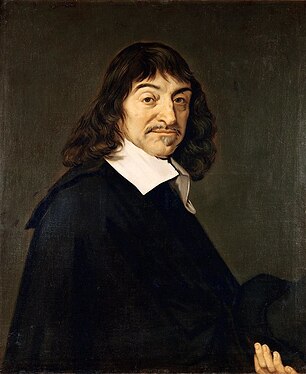저는 형상적 실재성과 표상적 실재성이 한 관념에 동시에 귀속될 수는 없는 것으로 알고 있어요. 아마 이 부분은 데카르트 연구자들마다 의견이 조금씩 다른, 정말 '전문 연구의' 영역인 것 같아요. 다만, 데카르트의 관념 이론에 대한 권위 있는 논문 중 하나인 차펠(V. Chappell)의 "The Theory of Ideas"에는 (이번 학기에 데카르트의 관념 이론에 대한 수업을 듣는데, 담당 교수님께서 이 논문이 데카르트의 관념 이론과 관련된 모든 연구에서 인용되는 텍스트라고 하시더라고요.) 다음과 같은 내용이 있어요.
One property of things that is of special importance to Descartes is reality. This is the property the objective counterpart of which is most often discussed in the Cartesian texts. The causal principle relating objective reality to formal or actual reality is, after all, the crucial premise in Descartes' main argument for the existence of God. Objective reality is always attributed to ideas by Descartes. Since, as we have now seen, it is only objective beings that can be said to have objective properties, the precise subject to which objective reality is ascribed must always be an idea o [idea in the objective sense]. This means not only that it is not the actual sun, as opposed to the sun in my mind, that objective reality belongs to, but also that it is not an idea m [idea in the material sense], the mental act by which I think of the sun. Both the actual sun and my mental acts have formal, not objective, reality, since both have formal or actual being rather than objective being. Descartes sometimes indeed attributes formal reality to ideas. But it is clear that, when he does so, the subjects of attribution are ideas m. There are also a few passages in which it appears that one and the same idea is being said to have both formal and objective reality. In the Third Meditation, for example, Descartes writes: "Such is the nature of this idea [sc. my idea of heat or of a stone], that of itself it requires no other formal reality besides that which it borrows from my thought, of which it is a mode. But for this idea to contain this or that objective reality rather than another, it must certainly get it from some cause in which there is at least as much formal reality as the idea contains of objective reality" (AT VII, 41: HR I, 162-163). A careful reading of this passage, however, reveals that objective reality is not being ascribed to the idea that is said to have formal reality—and which is, ipso facto, an idea m. The idea here is not said to have objective reality—or to be objectiveiy real—but rather to contain it. Nor should the use of this word "contain" be surprising, if indeed the precise subject of objective reality is an idea o for I have already characterized an idea o as the "content" of an idea m. The same point can aiso be made, I believe, for the rest of the passages in question. (V. Chappell, "The Theory of Ideas", Essays on Descartes' Meditations, A. O. Rorty (ed.), Berkeley: University of California Press, 1986, pp. 189-190.)
여기서 차펠이 제시하는
Descartes sometimes indeed attributes formal reality to ideas. But it is clear that, when he does so, the subjects of attribution are ideas m, the mental act by which I think of the sun. .
데카르트는 종종 실제로 형상적 실재성을 관념에 귀속시킨다. 하지만 그가 그렇게 할 때, 귀속의 주체는 관념 m [질료적 의미에서의 관념], 곧 그것을 통해 내가 태양을 사유하는 정신적 활동이다.
A careful reading of this passage, however, reveals that objective reality is not being ascribed to the idea that is said to have formal reality—and which is, ipso facto, an idea m. The idea here is not said to have objective reality—or to be objectiveiy real—but rather to contain it. Nor should the use of this word "contain" be surprising, if indeed the precise subject of objective reality is an idea o for I have already characterized an idea o as the "content" of an idea m.
그러나 이 구절에 대한 주의 깊은 독해는 표상적 실재성이 형상적 실재성을 가진 것으로 말해지는 관념에 귀속되지 않는다는 사실—결과적으로, 관념 m [질료적 의미에서의 관념]인 것에 귀속되지 않는다는 사실—을 드러낸다. 여기서 관념은 표상적 실재성을 가진다고 말해지지—또는 표상적으로 실재적이라고 말해지지—않으며, 오히려 그것을 포함한다고 말해진다. 내가 이미 관념 o를 관념 m의 "내용"으로 특징지었기 때문에 표상적 실재성의 정확한 주체가 관념 o라면, "포함한다"라는 이 단어의 사용에 대해 놀라서는 안 된다.
이 주장들이 옳다면, 관념이 표상적 실재성과 형상적 실재성을 모두 가진다고 말할 수는 없을 거예요. 단지 '정신적 활동'이 형상적 실재성을 가질 뿐이고, '관념'은 표상적 실재성을 가진다고 해야 옳을 것 같아요. (차펠의 표현을 사용하자면, 전자는 ideas m이고 후자는 ideas o인데, 지금 문제가 되는 '관념'은 ideas o이니까요.)
